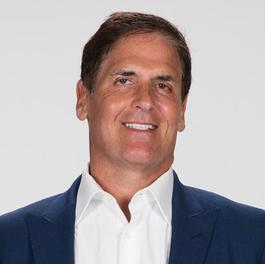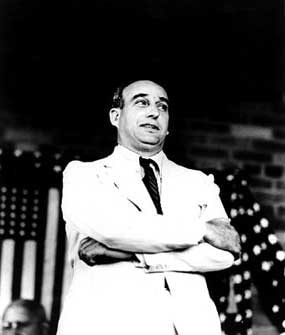|
 "If you are willing to do only what's easy, life will be hard. But if you are willing to do what's hard, life will be easy." -T Harv Eker Young people entering the workforce aspire to get to the top---real fast. When they ask people for advice on what they have to do to get to the top? The typical advice they get is work hard and smart and look for opportunities and when they arise, grab them. You never know where it may lead you. But, what does that look like in real life? What have other famous people that can be used as a lesson on the path to the top? Let's look at what Mark Cuban. American businessman and investor, did that got him toward a path to success. It comes down to one acronym: RTFM ("Read the f***ing manual." That's right. Here is what he says in his book How to Win at the Sport of Business: If I Can Do It, You Can Do It. "Turns out not a lot of people ever bothered to RTFM (read the frickin’ manual), so people started really thinking I knew my stuff. As more people came in, I could offer honest comparisons because I knew all the different software packages we offered, and customers respected that. After six months, he started getting consulting jobs from clients who needed help installing software at their office. He was making so much money that he moved from living with six friends and rent move into a three-bedroom apartment with his own bedroom. That was a big deal for him at that time." What Cuban did was to know something in depth that others did not want to take time knowing. The knowledge from reading the manuals helped him stand out among his colleagues. He was able to add value to clients and not only get him noticed but made him good money---both for his computer store and himself. He learned a valuable lesson on how to stand out that he continues even today. But now you know how you too can do it in a business environment if you are willing to work hard and smart. RTFM. It can put you on a path to success.  On a grander scale, money and power often go to the person who knows the intricacies of something that very few do. The reason for this is that they are in the inside and took the time to study the details that others did not care to. Kowing the details is what Robert Moses, American public official, used to become very powerful in New York. Moses, according to Robert Caro's book The PowerBroker: Rober Moses and the Fall of New York, knew how to draft a bill that made the position of the president of the Long Island State Park Commission extremely powerful that he was appointed to by Governor Al Smith. Moses had learned a hard lesson when he tried to be a reformer that free and open debate does not give one power. It is mainly through deceit---knowing the inner workings of what goes in a bill and then get it passed in a way that draws little to no attention was his recipe to gain power. He knew how to grab power, and nothing was going to stop him. So what did Robert Moses know that others didn't? 1) The unique interpretation of the word "appropriation." 2) How to increase the authority of the Long Island State Park Commission 3) How to pass the bill when no one was paying close attention 4) Get close to Governor Al Smith, so he appoints him as the president of the Lond Island State Park Commission The unique interpretation of the word "appropriation" In 1924 this word in legislative context meant allocation of funds. However, no one bothered to correct something that was passed in a conservation law in 1884 that appropriation meant government took possession of remote forest lands from landowners so it could not be sold to lumbering companies for stipping. This part of the bill was never repealed and Moses now had the law to help him appropriate land for his projects. How to increase the authority of the Long Island State Park Commission Moses took advantage of words that were not defined to empower the Long Island State Park Commission to control forty thousand acres of land. Moses used all kinds of trickery including lying to older legislators to hide his real intention of gaining power over the property. How to pass the bill when no one was paying close attention Moses was shrewd in making sure that the bill was introduced by a junior member whom Moses didn't tell much of what his intention was with the Long Island State Park Commission. Moses made it appear that this was a routine bill not to draw any attention. It worked. There was no question asked about the word "appropriation" or any other language in the bill. Ther was no debate, and the bill was passed by unanimous vote by both the Assembly and the Senate on the last day of session on April 10, 1924. Get close to Governor Al Smith so he appoints him as the president of the Lond Island State Park Commission Al Smith, Governor of New York, appointed Moses as the Long Island State Commission. Caro writes in his book, "At the age of thirty-five, Robert Moses had power. And no sooner did he have it than he showed how he was going to use it." And he remained a dominant figure in New York state and city for close to fifty years. It all started knowing something that very few people knew on how to draft a bill to empower himself. Both these examples show that to move up, you have to know the details and then know how to leverage that knowledge to your advantage, even if you have to be devious like Robert Moses. If you are willing to do that, then you too can become rich, powerful and famous someday. ---------------------------------------------------------------------------------------------------------------------------------------  Jay Oza is a writer, speaker, executive coach. He helps people win by giving high stake speeches and executive job interviews. He is the author of the book Winning Speech Moments: How to Achieve Your Objective with Anyone, Anytime, Anywhere. Please download the speech checklist and the speech workbook to help you with your next high stakes speech. You can get more information at www.winningspeechmoments.com. You can contact me at [email protected].
1 Comment
|
AuthorJay Oza Archives
July 2024
Categories
All
|
© 2017 Winning Speech Moments


 RSS Feed
RSS Feed